AI robot to venture into hazardous areas
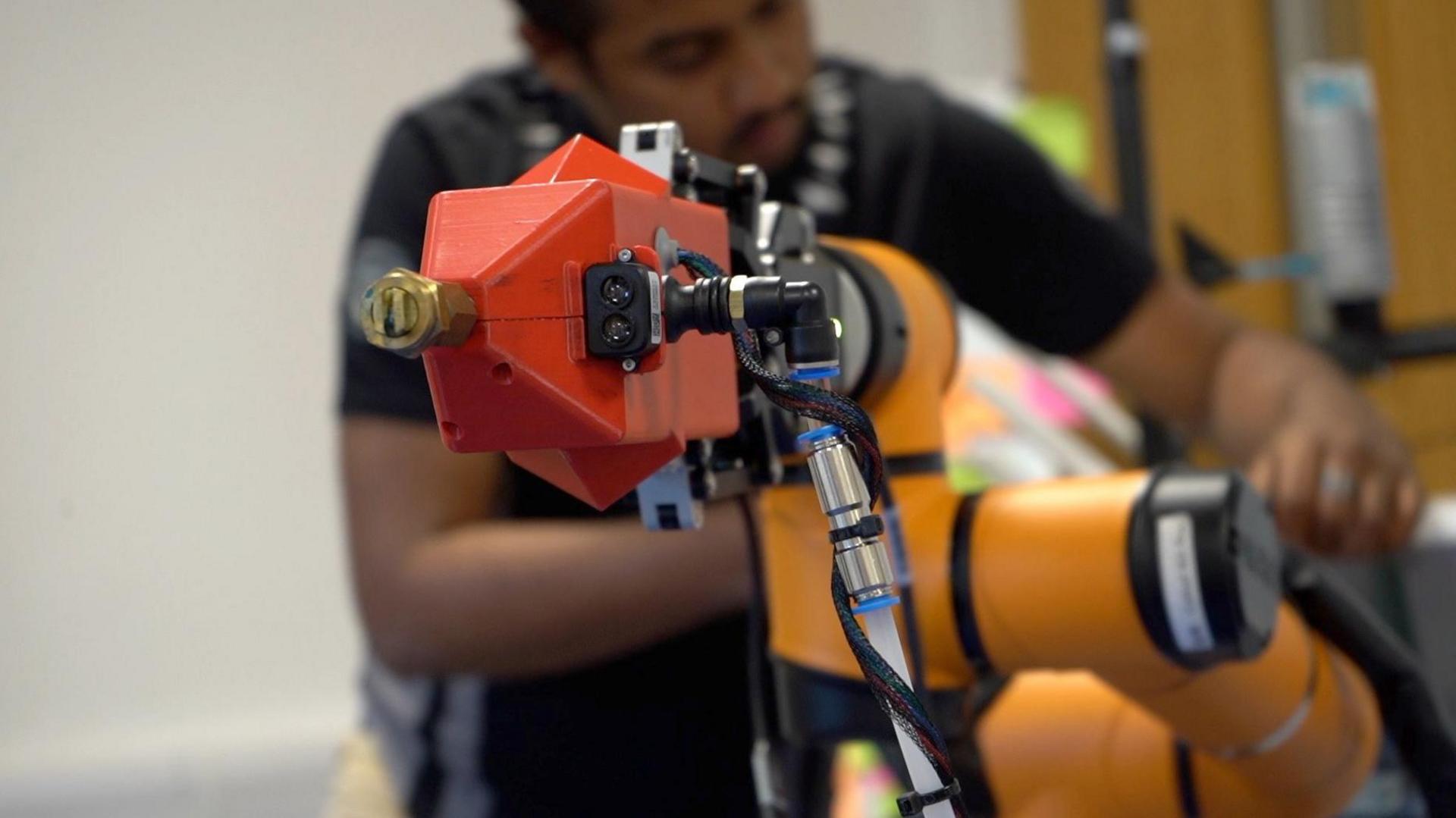
Oxford Dynamics has a £1m contract with the MoD to design, develop, and supply the robots
- Published
One of the founders of a start-up company making a robot to venture into areas hazardous to humans says he hopes to build thousands of them in the future.
Oxford Dynamics, based in Harwell, Oxfordshire, has a £1m contract with the MoD to design, develop, and supply the robot.
The robot, known as Strider, is built to work amid chemical, biological or nuclear incidents, or where there is fatal radiation.
Mike Lawton, one of the company's directors, said: "Ultimately let’s be able to build 100, maybe 1,000, 10,000 Strider robots for the benefit of the world."
He added: "Rather than send a human in to deal with potentially deadly substances, let’s send a machine instead."
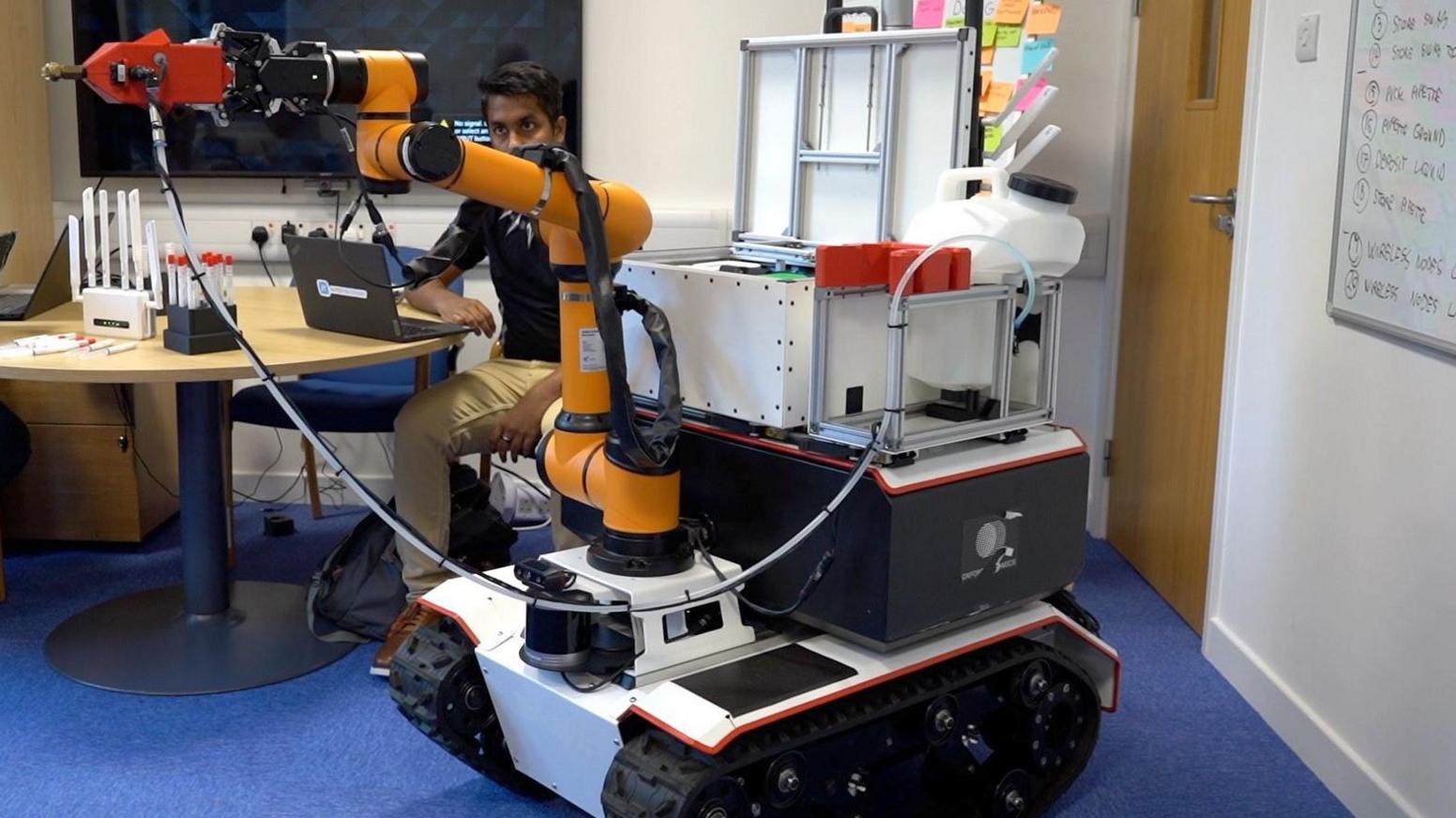
The company aims to add its AI software to the robot
The company started designing Strider in November, and must deliver it to the Defence Science and Technology Laboratory by September, for use by Defra.
It is envisaged that it could be used in the aftermath of circumstances similar to that of the Novichok attack in Salisbury in 2018.
It can retrieve contaminated objects and put them in sealed containers, and carry out semi-autonomous activities that would be complicated for humans wearing personal protective equipment.
It can also operate in difficult and unknown terrain, using infra-red, as well as radar and lidar (light detection and ranging) systems.
Strider can operate in difficult and unknown terrain
The company aims to add its AVIS AI software to the robot, which stands for A Very Intelligent System, and is inspired by JARVIS from the Iron Man films.
Founder and director Shefali Sharma said the technology could be adapted to submarines or fighter jets in the future.
"If we can get these technologies into the hands of the people who genuinely need it... once it goes out there it’s absolutely going to be a dream come true as an entrepreneur [and] as a founder of the company," she said.
In a statement, Ewen Davies from Defra said: "It’s great to see concepts that we’ve discussed internally for a while rapidly taking shape in the form of a highly capable and flexible platform."
Follow BBC South on Facebook, external, Twitter, external, or Instagram, external. Send your story ideas to south.newsonline@bbc.co.uk, external.
Related topics
- Published24 July 2024

- Published10 July 2024
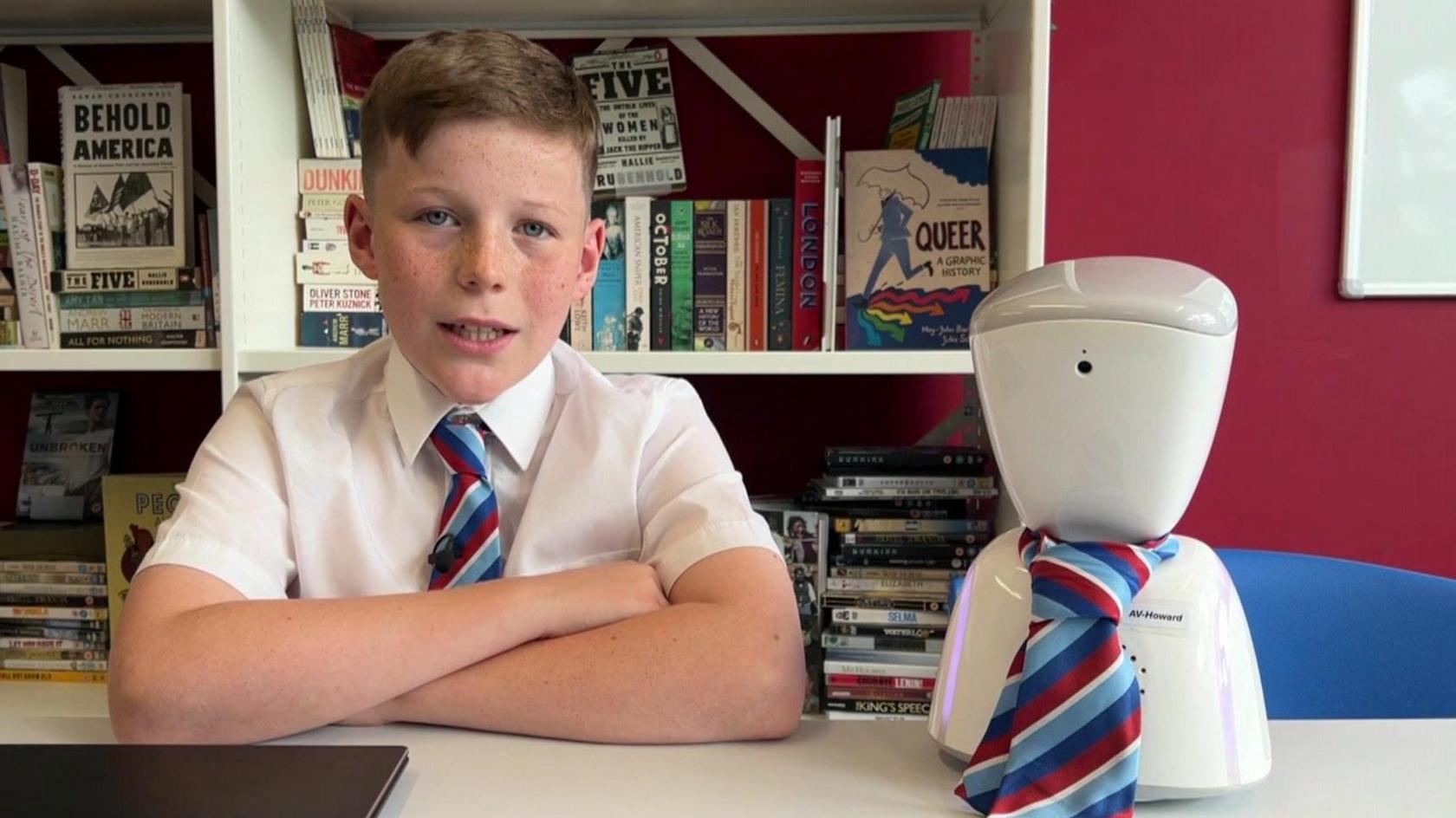
- Published25 June 2024
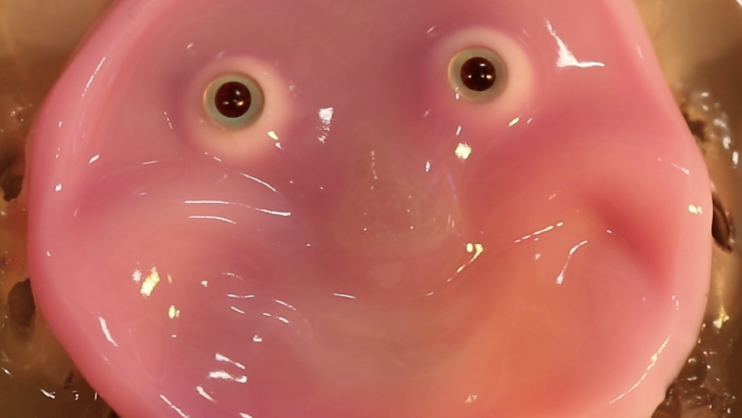
- Published2 June 2024

- Published29 March 2024
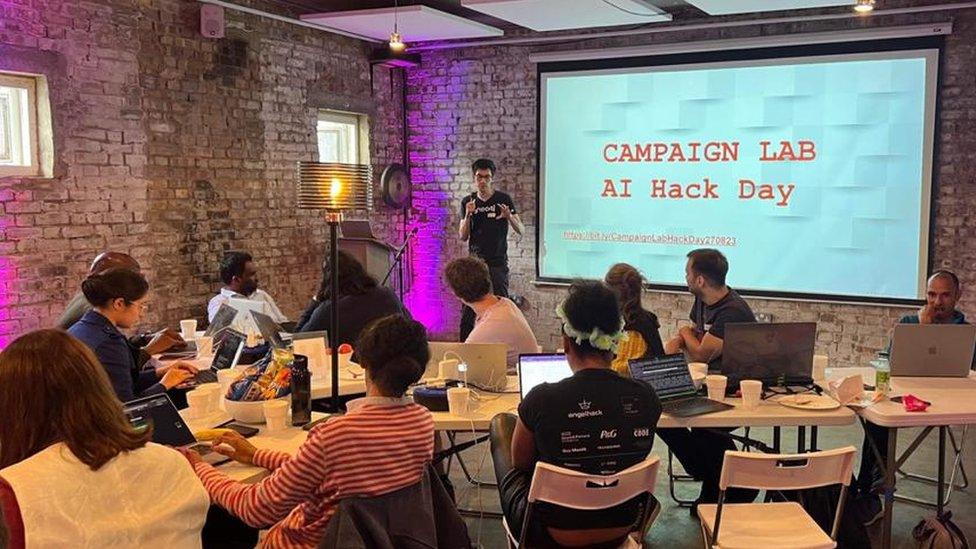
- Published19 March 2024
